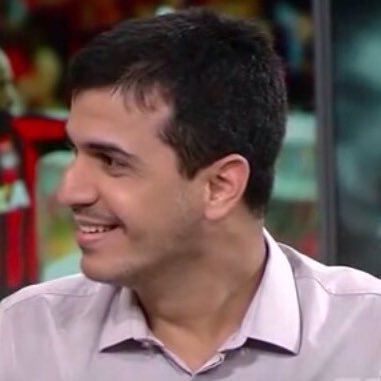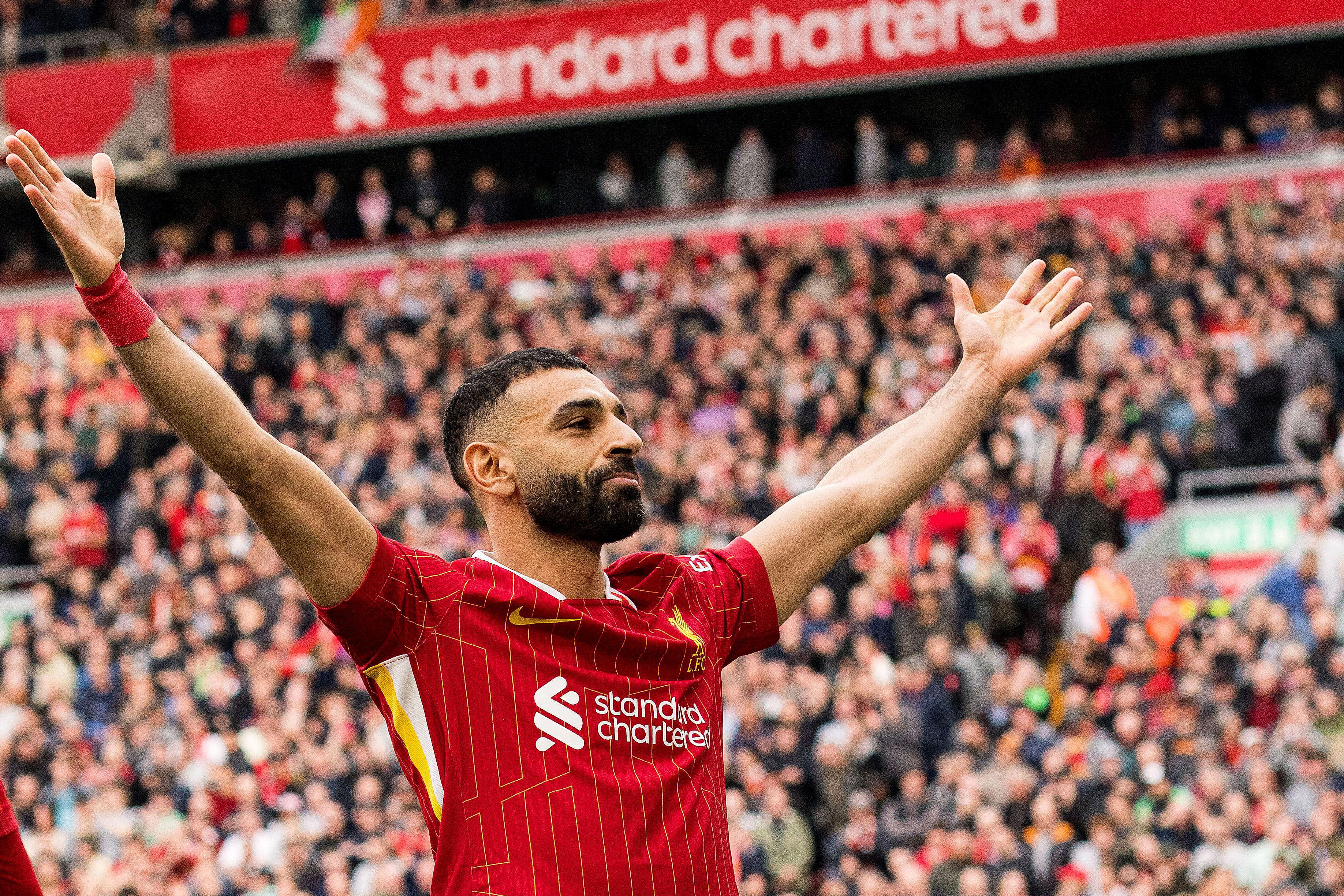Diogo Jota exclusive: "Ronaldo was my idol. When I made my Portugal debut, I came on for him - it was so special"
After a dazzling debut season at Liverpool, Diogo Jota is ready to shine for Portugal this summer. As he tells FFT, though, even he took some convincing from his super agent when it came to his unconventional journey to the top

This interview with Diogo Jota is from the Euro 2020 preview issue of FourFourTwo. Subscribe now and never miss an issue!
Diogo Jota was a 17-year-old awaiting his first-team debut when he approached the youth co-ordinator at Pacos de Ferreira and made an unusual request. For the sake of his career, he wanted to learn a new language.
Even at such a young age, Jota understood that his path into club football was unlikely to be easy. At international level, Portugal have won Euro 2016, as well as the inaugural UEFA Nations League in 2019, but the country has long faced a problem which it is still yet to solve. At club level, academy graduates don’t always get opportunities.
A recent study found that only 4.6 per cent of all minutes played by footballers in Portugal’s top flight this season were given to homegrown talents – or players who have represented that club for at least three seasons between the ages of 15 and 21. That was the lowest figure in any of Europe’s biggest 27 leagues, compared with 12.7 per cent in England and 15.5 per cent in Spain.
Eight years ago, Jota was already aware of the issue – and he had a back-up plan. Not long after joining mid-table Pacos in 2013, he spoke to youth chief Gilberto Andrade.
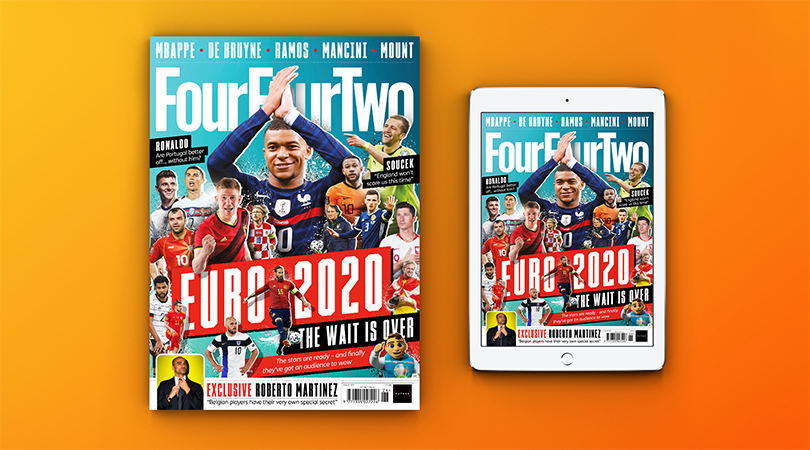
“At the time, it was complicated for any young player in Portugal to get into the first team,” Jota tells FourFourTwo. “I’d always seen the possibility of playing abroad in a positive light. In order to adapt more easily, being able to communicate would be essential wherever I headed.
“I’d already studied English at school, so I went to Gil and asked if he could help me with Spanish, too. He had audio language CDs, which ended up being very helpful at the beginning for an introduction to the language, providing the basics. Then I began having classes with a local teacher.”
Get FourFourTwo Newsletter
The best features, fun and footballing quizzes, straight to your inbox every week.
Soon, those lessons would prove very useful, although not for the reasons he initially feared. Barely a year after arriving from Gondomar, a small club in the Porto area, Jota caught the attention of Pacos coach Paulo Fonseca, who has since gone on to manage Shakhtar Donetsk and Roma.
A 22-goal campaign with the under-19s earned him a dream debut in October 2014, with a goal and two assists in a Portuguese Cup tie. Later that season, he notched his first brace in the Primeira Liga – at 18, he was the youngest to do so since Cristiano Ronaldo in 2002. It was enough to convince everyone that he was a star in the making. By the end of 2015-16, Jota had signed for Atletico Madrid.
THIS IS ANFIELD What next for Liverpool after 'phantom' season?
Shortly afterwards, he watched on television as Portugal won the Euros for the very first time. “I was already in pre-season in Spain,” he says, remembering that heady summer. “I was so proud – we deserved to be European champions.”
Despite such a big move, the boy from Massarelos never envisaged that come the next European Championship, he would be representing Portugal himself.
“It didn’t really cross my mind – making long-term plans isn’t for me,” he says. “But I had the dream of getting to the national team, and fortunately that’s happened.”
The Liverpool forward has certainly made a strong case for himself. After March’s round of internationals, he’d been directly involved in eight goals for Portugal this term – scoring six and assisting two more, in just five starts. Although manager Fernando Santos insists that Ronaldo is the only player guaranteed a place in his preferred line-up, there’s a growing school of thought that the Selecao’s attacking trio this summer should be Bernardo Silva, Joao Felix and Jota.
Not even in his wildest dreams could the 24-year-old have envisioned where he is now. After all, no one could accuse Diogo Jose Teixeira da Silva of taking the direct road to get here...
False economy
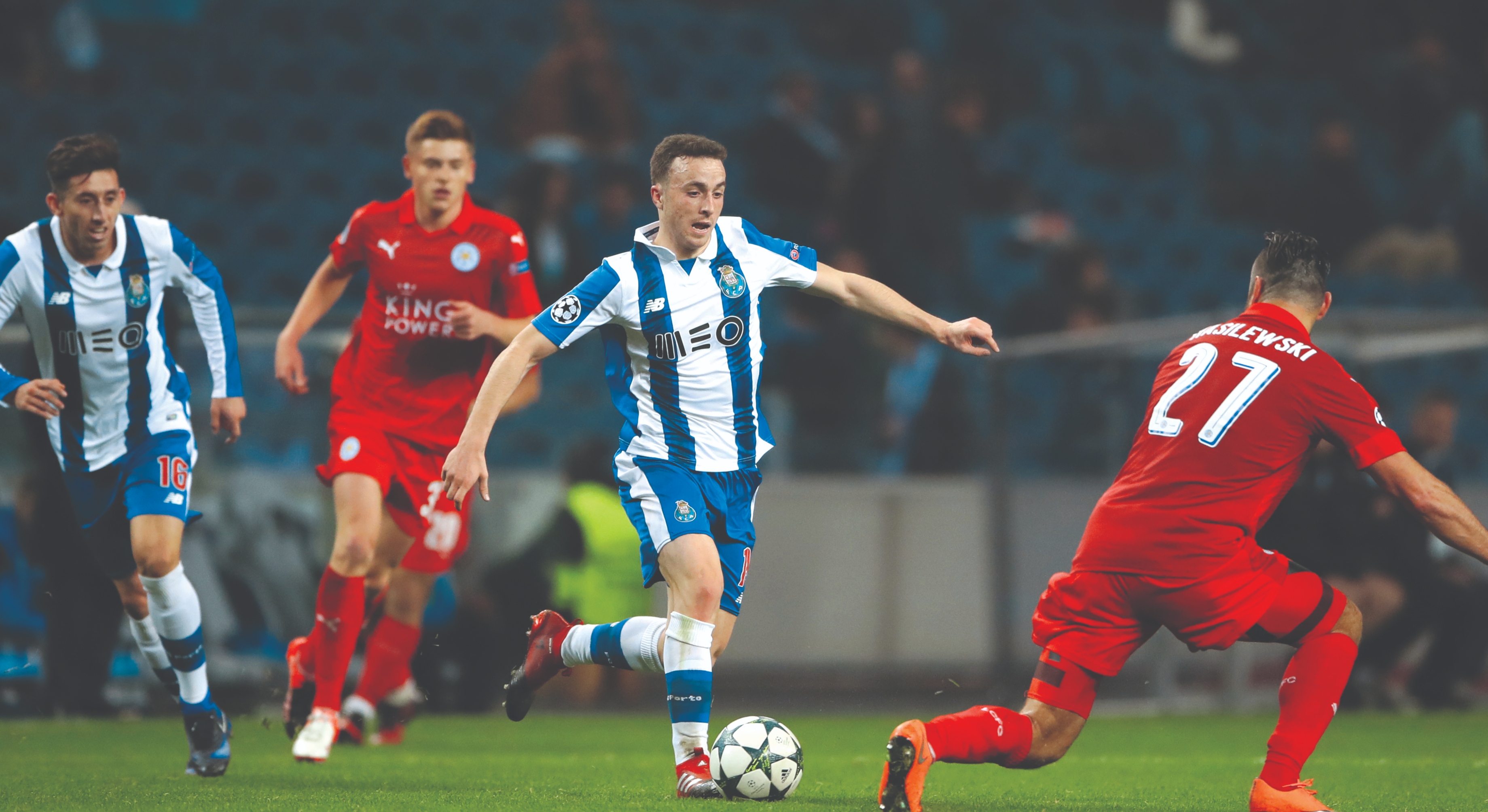
Along with Bruno Fernandes, Jota is a rare case of an elite Portuguese footballer who never spent time at one of the country’s biggest academies.
“I have no doubt that it was much more challenging,” explains Jota. “If it’s already difficult to make it as a pro having played in one of those top academies, imagine if you come from outside them. The percentage of players who come this far is even smaller. I was still paying to play when I was 16 years old, so I’m aware that what I’ve managed to achieve is unusual.
“Apart from Porto, Benfica, Sporting, and perhaps Braga and Vitoria de Guimaraes, you usually have to pay a monthly fee in the smaller academies in Portugal. It’s very common. I spent nearly 10 years with Gondomar, and for that entire time I had to pay [around €20] to play for them. Only when you got to the under-19s did you stop paying, but that was exactly when I left.”
For years, the pint-sized teenager – originally a midfielder – was repeatedly overlooked by the big clubs. Although he was never given an explanation, he suspects that one of the reasons was his slim frame. Many thought he was just too small.
“Perhaps that’s why I was never chosen,” he says. “I had trials for Porto and Benfica when I was young, and also for Braga when I was a bit older. It was around then that I hit a growth spurt, and that factor was no longer a problem for me. My body really developed, and I felt I could do things better on the pitch.”
Jota – Portuguese for the letter ‘J’, the nickname which has stuck since childhood to distinguish him from the myriad other Diogos at Gondomar – smiles as he recalls one particular episode from that period. One weekend he faced the same opponents twice. Jota scored five goals, all against the same goalkeeper. He was unstoppable.
“It’s not every day that something like this happens,” he grins. “I was doing very well for the under-17s. The under-19s were fighting relegation, so they called me up, meaning I’d be competing in 90-minute matches for the first time in my life. At under-17 level, games were only 80 minutes.
“That weekend, I started for the under-19s on the Saturday and scored a hat-trick. Then on Sunday morning, the under-17 manager might have thought I was tired, so he left me on the bench. He brought me on during the second half, and I still scored twice!
“In terms of numbers, that was one of the best seasons I’ve ever had. I scored almost 40 times and didn’t even play as a forward, but as a midfielder.
“It’s a campaign that has to be mentioned in my growing process as a player.”
Jota’s 39 goals in 37 games for Gondomar took him to Pacos de Ferreira, where, for a brief moment, he feared that his career would be at risk. While undergoing medical tests ahead of the 2014-15 season, a heart problem was diagnosed. He wasn’t allowed to train until his situation was clarified. The month-long wait felt like an eternity.
“That was a difficult moment,” reveals Jota. “It had the sort of impact that made me ask, ‘Will I be able to continue playing?’ But I always keep a positive mentality in those situations, trusting that everything was going to be all right. I knew it could mean quitting football, but I didn’t believe for a second that it was going to happen. In Portugal, we use the phrase ‘you shouldn’t put the cart before the horse’ – don’t draw conclusions before you know the facts.
“The whole thing happened on my first day of work, when you undergo fitness tests. It was a bit of a scare because there was some alteration in my electrocardiogram. I had to be submitted for an electrophysiological study. Only after that was I given medical clearance to continue playing. I ended up missing part of pre-season and my senior debut was delayed.”
Jota quickly made up for lost time and established himself as one of the Primeira Liga’s rising talents. A down-to-earth and strong-minded teenager, his outrageous skill set ensured several teams were soon circling, yet he chose to remain living in the club dormitories with other academy graduates until his very last day. He was the only first-team footballer there.
“At the beginning I shared a room with Fred, a right-back who currently plays for Torreense,” he says. “We usually had seven to eight players living in the house during the season, but often there was a high number of people arriving and leaving as well, because trialists from other countries also stayed there. I only got my own room in the second year. It had a TV – and a PlayStation!
“Dona Teresa worked for the club and took care of almost everything we needed – cleaning, doing the laundry and cooking our meals. They were delicious. That place was one of the reasons why I signed for Pacos de Ferreira – the conditions were great and it was close to the training ground. Perhaps others in my situation would have done things differently, but I didn’t feel the need to leave an environment where I was happy and got along with everybody.”
Jota never lost focus and impressed to such an extent on the pitch that one of his former coaches, Jorge Simao, told a local newspaper that the rising star would be the successor to Cristiano Ronaldo.
“I was a bit surprised to hear those words, as I didn’t realise he rated me that highly and I wasn’t expecting him to say it publicly,” admits Jota. “But at the same time, it made me think that if he believes that, why can’t
I do the same? It was a proud moment to have my name associated with a player like Cristiano. It gave me confidence.”
Not all heroes wear gloves
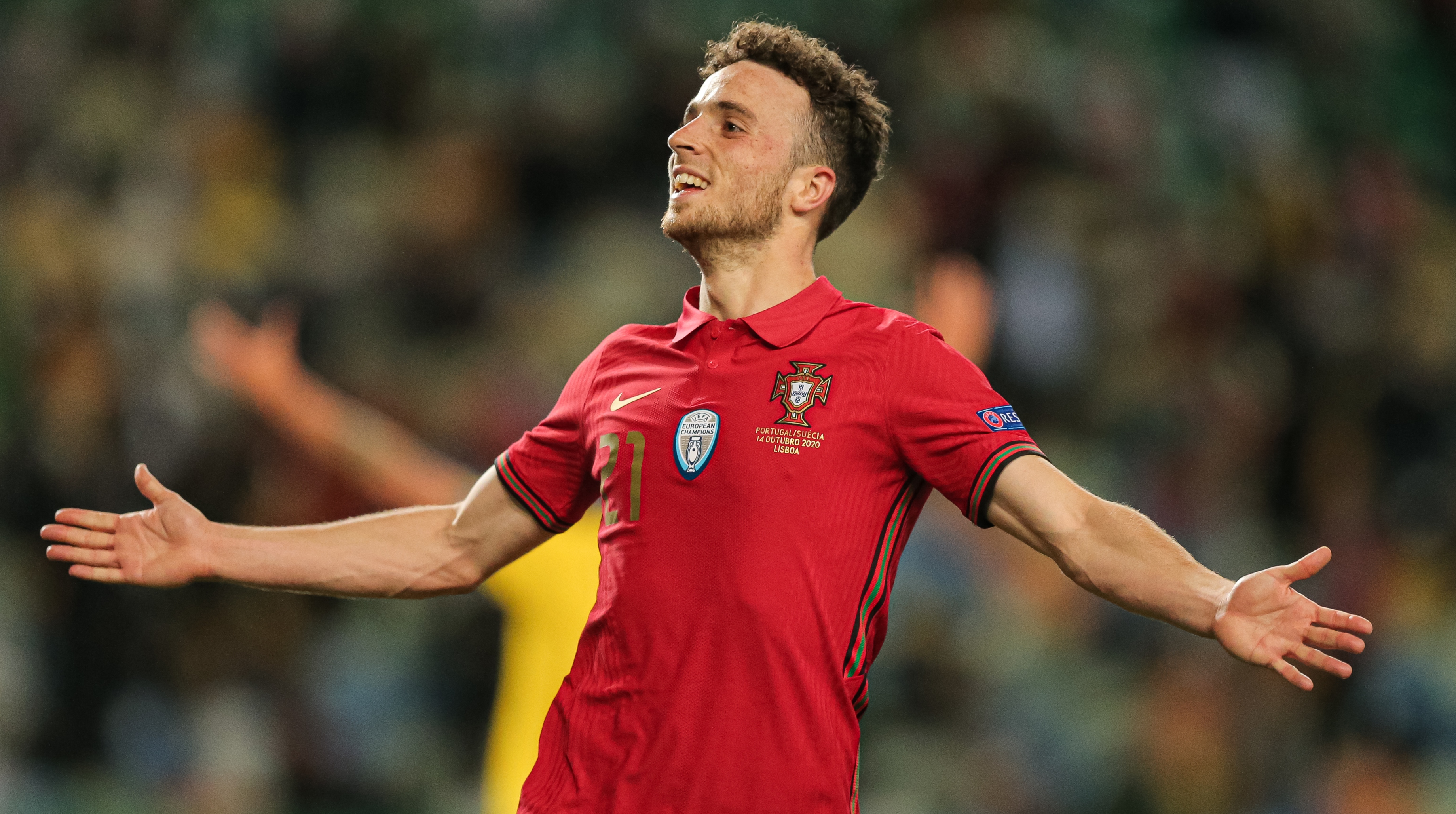
As a child, one of Jota’s earliest recollections was watching Portugal’s run to the Euro 2004 Final, where five-time Ballon d’Or winner Ronaldo and his more experienced Selecao colleagues were defeated by Greece on home soil.
“That was my first footballing memory,” he says. “I remember watching the quarter-final against England – I was sat in the living room with my dad and my brother, and we were all so happy when we won. I couldn’t believe how Ricardo managed to stop a penalty with no gloves on. That was such a remarkable moment for me.”
Some 17 years later, he’ll get the chance to play alongside Ronaldo at the very same tournament this summer.
“Cristiano was my idol – I saw him playing at the highest level at Manchester United, winning the Ballon d’Or and other awards,” recalls Jota. “Being Portuguese, I’ve always looked up to him as an example to follow.
“When I made my international debut against Lithuania in November 2019, I came on as a substitute for him, which made the moment more special for me. I can only be grateful to have the opportunity to share a dressing room with him.”
The Selecao’s current crop of players has been described as the best ever produced by Portugal. It’s difficult not to get carried away when you have Bruno Fernandes, Joao Felix, Ruben Dias and Bernardo Silva around, but Jota insists they have a lot of work to do – not least with the pressure of defending a title for the first time in their history.
Being drawn in a group with Germany and world champions France didn’t exactly make things any easier, either.
“I always stress that Hungary are there, too,” says Jota. “Remember, when we won Euro 2016, we failed to beat them during the group stage [in a 3-3 draw]. We’ve been handed a very difficult draw, but the Euros were never meant to be easy. Regardless of that, we know the quality we have, so if we’re able to build a good team in the true sense of the word, I believe we’re capable of getting through to the knockout stages.”
Ask him to explain why Portugal produces so many world-class footballers, though, and Jota struggles. “Honestly, I can’t,” he says. “What I know is that Portugal have been doing a really good job in terms of youth football, and now we’re probably reaping the fruits of it. A generation of players like the one we have doesn’t come out of nowhere, which means we were already doing things well 15 years ago.”
That Jota has got this far is testament not only to his talent and hard work, but also to his bravery and willingness to take risks. He faced scepticism from everyone back home – his family included – when he decided to join Wolves from Atletico in 2017, despite previously playing regularly on loan for Porto. Rather than making a permanent switch to a club he had recently represented in the Champions League, scoring in a 5-0 win over Leicester, he was joining a club who’d just finished 15th in the Championship.
Three years later, after helping Wolves to the Premier League and quarter-finals of the Europa League, he moved to Liverpool for a reported £45 million. His spell in the West Midlands paid off handsomely.
“A short while ago, I saw a Transfermarkt study that had the Championship as the sixth-most valuable league in Europe,” says Jota. “The Portuguese league was listed fifth, so from that perspective you may say that moving to Wolves was a step back at that moment, but I found the Championship to be very competitive.
“But it was about the project, too – in my opinion, Wolves have got the right people running the club. Sometimes you need to take a step back to take two steps forward. In the end, things went well and it proved to be the right decision, even if it sounded a bit risky back then.
“I had an uncle who asked me why I was doing it, but he agrees with me now! I must admit that even I wasn’t totally sold on the idea when I initially heard about it from my agent, Jorge Mendes.
“He eventually convinced me, and now he says, ‘See how I was right all along?!’”
Klopp idol
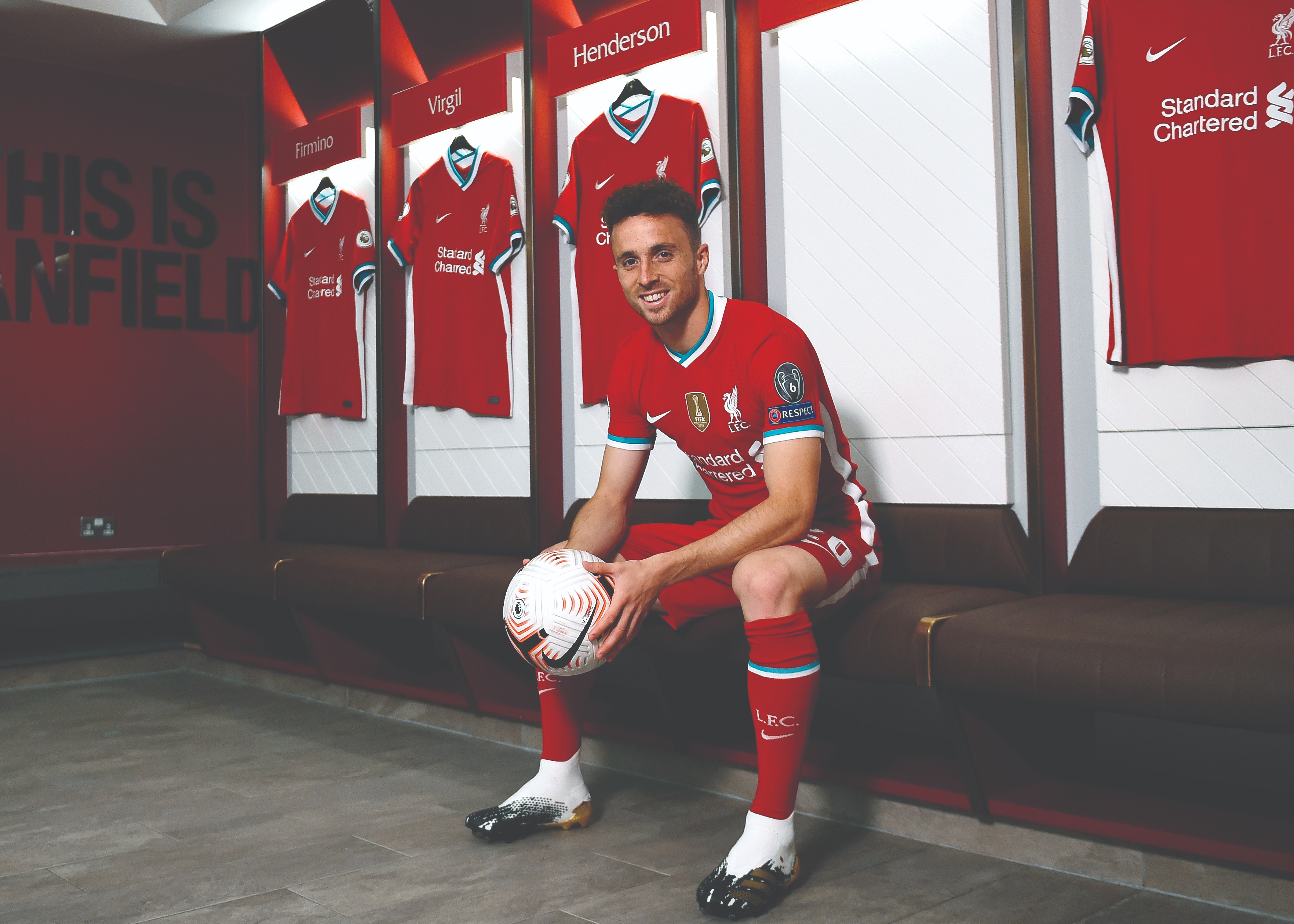
Jota hit the ground running at Anfield. He scored seven goals in his first 10 Liverpool appearances, which included an astonishing hat-trick against Atalanta in the Champions League group stage. No Red since Robbie Fowler in 1993 had notched more in their first 10 outings for the club, earning him the nickname ‘Jota the Slotter’ from former Liverpool defender Jamie Carragher. Unlike other signings who were given some time to acclimatise to Jurgen Klopp’s gegenpress, Jota needed no such period of adaptation.
“He’s exactly the manager that he appears to be – very communicative, and he enjoys being close to the players,” says Jota. “He will send you a text out of nowhere when you’re relaxing on the sofa at home. It’s the sort of thing that had never happened to me, and that surprised me in the most positive way. It’s just one of his great assets.
“Before signing the papers, I had a video call with him. I don’t think he was expecting to convince me, because I was already convinced. He’s a coach who I admire and had been following for a long time, so this was a unique opportunity in my career and I couldn’t afford to lose it. We usually say that we don’t have to think twice. In this case, I didn’t think once – it was a no-brainer.
“I was very well received by everyone at the club, which certainly helped me. I’m close to the Brazilians, especially Fabinho because of the language, but I also have a good relationship with Jordan Henderson, James Milner, Trent Alexander-Arnold and Andy Robertson. Liverpool play offensive football, which gives me more chances to score. It’s up to me to take advantage of that.”
A knee injury in early December halted Jota’s stunning start on Merseyside. The No.20 missed 18 games, the spell coinciding with Liverpool’s torrid run of form – they only won seven games during his absence.
“I was out for almost three months – it was the longest I’ve been injured in my professional career, and possibly at the worst time because things were going well for me,” he laments. “I just wanted to keep doing what I was doing, but I couldn’t help the team. Then the results we were getting weren’t the best, which only increased my frustration. When I came back, I focused on what I could do to improve the situation.”
Quickly, he found the net in crucial wins – at former side Wolves and twice at Arsenal. In between, he bagged three goals in two games for Portugal, too.
Just three years after turning out in the Championship, Jota has become a key man for both club and country. It may have been a circuitous route to the top, but the boy from Gondomar has reached his destination. Make no mistake, now: he’s here to stay.
This article first appeared in the June 2021 issue of FourFourTwo
READ MORE
WALL CHART Euro 2020 wall chart: Download free with full schedule, fixtures and dates
GROUNDHOPPER Euro 2020 stadiums: Host cities, capacities, and everything you need to know
Marcus Alves is a freelance journalist based in Lisbon and has written for FourFourTwo since 2012. He can also be found at BBC Sport, the Telegraph, Kicker and Yahoo. A former ESPN reporter, he covered 12 games in 15 days during the 2014 World Cup in Brazil, but can barely remember any of them. He blames cachaça for that.
